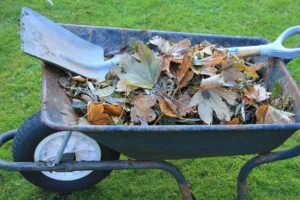Vertical hydroponic gardening has become increasingly popular among small apartment dwellers in recent years. It offers a smart way to grow plants indoors, even in smaller spaces.
With this method, you can easily grow fresh herbs, vegetables, and even fruits without needing soil, making it a convenient and sustainable option for those with limited room. Plus, the joy of having homegrown food right in your kitchen or living room is hard to beat.
That said, there are a few common concerns that come with DIY hydroponic systems. One of the biggest issues is the noise from pumps and air stones, which can be distracting in a quiet apartment. Additionally, some systems may produce odors due to stagnant water or nutrient buildup, which might not be ideal in a shared living space.
Addressing these concerns early on is crucial for maintaining a peaceful and pleasant environment. Luckily, with the right setup and maintenance, you can enjoy the benefits of vertical hydroponic gardening without these issues.
Let’s explore how to keep your system apartment-friendly while avoiding noise and smell.
Understanding Hydroponic Systems in Small Spaces
Hydroponic systems are a great way to grow plants indoors, especially in spaces like small apartments. These systems allow you to grow food without soil, which saves space and reduces mess.
You can cultivate a variety of plants, from herbs to leafy greens, all year round. This makes them perfect for apartment living, where space is often limited.
There are several types of hydroponic systems ideal for small spaces:
Deep water culture is a simple option where plants grow in a nutrient-rich solution.
Aeroponics, which involves growing plants in air with misted nutrients, is another space-efficient choice.
The nutrient film technique uses a thin film of water to feed plants, allowing them to grow quickly in a small setup.
However, some systems may produce noise or odors due to water circulation and nutrient buildup. It’s important to choose the right system for your space.
Noise Concerns and How to Mitigate Them
Hydroponic gardening is a great way to grow plants indoors, but noise can be a challenge. Pumps, air stones, and water circulation create sounds that might disturb your home’s peace.
In small apartments, even a low hum can be noticeable. The key is to understand where the noise comes from and take steps to reduce it.
Identifying Noise Sources
Most hydroponic systems rely on moving water and air. The main culprits of unwanted sound include:
- Water Pumps – These circulate nutrient-rich water through the system. Some models vibrate loudly, especially if placed on hard surfaces.
- Air Pumps and Air Stones – Needed for oxygenation, they produce a bubbling sound that can be quite audible.
- Water Movement – Trickling or splashing can create constant background noise, depending on your system’s design.
How to Reduce Noise
Choose Low-Noise Equipment
Not all pumps are created equal. Some run much quieter than others. Look for models with:
- Low decibel ratings – Some manufacturers specify noise levels in dB (decibels). A good rule of thumb is choosing pumps below 40 dB.
- Rubber feet or anti-vibration pads – These help absorb movement and reduce sound.
- Brushless motors – Quieter and longer-lasting than traditional motor designs.
Many brands offer quieter air and water pumps. Some even advertise “silent” operation, making them ideal for small apartment setups.
Use Sound-Dampening Materials
If vibrations are the issue, placing pumps on foam padding, rubber mats, or silicone pads can make a big difference. These materials absorb sound before it travels through surfaces.
Other simple fixes include:
- Wrapping air pump tubing with insulating foam to muffle vibrations.
- Using acoustic panels or soft furniture near your setup to reduce echoes.
- Placing water pumps inside silicone-lined containers to contain sound.
Pick the Right Location
Where you place your system can impact how much noise you hear. Try setting it up in:
- A closet or enclosed cabinet to block sound.
- A corner with soft surfaces (rugs, curtains) to absorb noise.
- An area away from walls shared with neighbors to avoid disturbing others.
If your system must be in a main living space, positioning it against a fabric-covered surface or a bookshelf can help diffuse sound.
Optimize Your System’s Design
Certain hydroponic designs are naturally quieter:
- Deep Water Culture (DWC) – Uses fewer moving parts, reducing overall noise.
- Drip Systems with submerged outlets – Prevents water from splashing.
- Closed-loop systems – Reduce the bubbling and trickling sounds from open reservoirs.
If water splashing is an issue, try:
- Lowering the water drop height – The less distance water falls, the quieter it will be.
- Using soft tubing or flexible pipe insulation – This helps dampen sound.
Additional Tips for a Silent Setup
- Run pumps on a timer – If 24/7 operation isn’t necessary, limit noise during quiet hours.
- Regular maintenance – Clean pumps regularly to prevent clogs, which can make motors work harder (and louder).
- Try a variable speed pump – Adjusting flow rates can help reduce noise when full power isn’t needed.
With a few tweaks, your hydroponic system can stay nearly silent while keeping your plants healthy.
Smell Concerns and How to Address Them
Just as it happens with noises, unwanted smells can also be a problem with hydroponic gardening. While a well-maintained system should have little to no odor, certain factors can cause unpleasant scents. The key is to identify the source and take simple steps to keep your setup fresh.
Identifying Sources of Smell
Most hydroponic odors come from:
- Stagnant Water – Poor circulation or lack of oxygen can create a musty smell.
- Nutrient Buildup – Over time, excess nutrients can break down and produce strong odors.
- Decaying Roots – If roots don’t get enough oxygen, they start to rot, leading to a foul smell.
How to Prevent and Eliminate Odors
Regular Maintenance
Keeping your system clean is the best way to avoid smells. Simple habits can make a big difference:
- Change the water every one to two weeks to prevent stagnation.
- Rinse and disinfect the reservoir with diluted hydrogen peroxide or white vinegar to remove residue.
- Check roots regularly—healthy roots are white and firm, while decaying ones turn brown and slimy. Trim dead roots immediately.
Use Odor-Neutralizing Products
If odors persist, natural air purifiers can help:
- Activated charcoal filters absorb smells and improve air quality.
- Air purifiers with HEPA filters help reduce airborne particles that contribute to odors.
- Baking soda placed near the system can absorb moisture and neutralize mild scents.
Keep the System Clean and Aerated
Oxygen is essential for both plant health and odor control. To keep water fresh:
- Use an air pump with an air stone to improve oxygen levels.
- Avoid overcrowding plants, which can restrict airflow and promote mold.
- Keep the system in a well-ventilated area or near a fan to reduce humidity buildup.
Choose Odorless Nutrient Solutions
Some liquid nutrients have strong smells. Switching to low-odor or organic-based formulas can help. If nutrient concentration is too high, diluting it slightly may reduce unwanted scents.
Additional Tips for a Fresher Setup
Certain plants naturally purify the air. Adding basil, mint, or lavender near your hydroponic setup can help neutralize odors. These aromatic plants not only freshen the air but also provide useful herbs for cooking.
Setting Up Your Hydroponic System for Apartment Living
Hydroponic gardening works well in small spaces, but choosing the right setup is key. Small apartments require compact, efficient systems that won’t take over your living area.
Choosing the Right System
Smaller setups like Kratky jars, Deep Water Culture (DWC), or vertical towers fit well in tight spaces. If you have more room, a nutrient film technique (NFT) system can grow several plants while staying compact. Look for models with built-in reservoirs to reduce spills and maintenance.
Ventilation and Air Circulation
Good airflow prevents mold, reduces odors, and keeps plants healthy. Placing a small fan nearby can improve circulation. If your system is near a window, occasional fresh air helps too. In closed spaces, an air purifier or dehumidifier can maintain balance.
Strategic Placement
Keep your system in a bright, accessible spot but away from direct heat sources. A corner, kitchen counter, or balcony can work well. If noise is a concern, place pumps on foam padding and keep the setup away from shared walls.
Long-Term Maintenance Tips for a Smooth Apartment Hydroponic Experience
Keeping a hydroponic system running smoothly in an apartment takes regular care. With a few simple habits, you can prevent issues and enjoy thriving plants.
Check Water and Clean Regularly
Water quality affects plant health and system performance. Change the water every one to two weeks to prevent stagnation. Check pH and nutrient levels often to keep plants well-fed. Clean the reservoir and tubing with hydrogen peroxide or mild vinegar solutions to stop algae and bacteria buildup.
Monitor Noise and Smell Over Time
Even if your system starts off quiet and odor-free, things can change. Pumps can get louder as they age. Water quality shifts can lead to unwanted smells. Inspect equipment monthly to catch problems early. If odors develop, clean the system and improve airflow.
Adjust as Plants Grow
Plants need more space and nutrients as they mature. Trim overgrown roots to keep water flowing properly. Increase airflow to prevent humidity buildup. If your setup feels cramped, consider expanding with vertical supports or a second system.
The Bottom Line
Vertical hydroponic gardening is a great way to grow your own food indoors, but noise and smell can be concerns. Simple adjustments can keep your DIY system quiet and fresh though.
Choose low-noise pumps, use sound-dampening materials, and place your setup in a strategic spot to minimize disruptions. Prevent odors by changing water regularly, keeping roots healthy, and using natural air purifiers. Small maintenance habits make a big difference.
With the right approach, you can enjoy a thriving indoor garden without disturbing your home’s comfort. Start small—maybe with a compact Kratky jar or a quiet Deep Water Culture system. Experiment with different setups until you find what works best for your space.
Growing plants hydroponically is rewarding, convenient, and surprisingly simple. With a little care, you’ll have a fresh supply of homegrown greens at your fingertips all year long.




